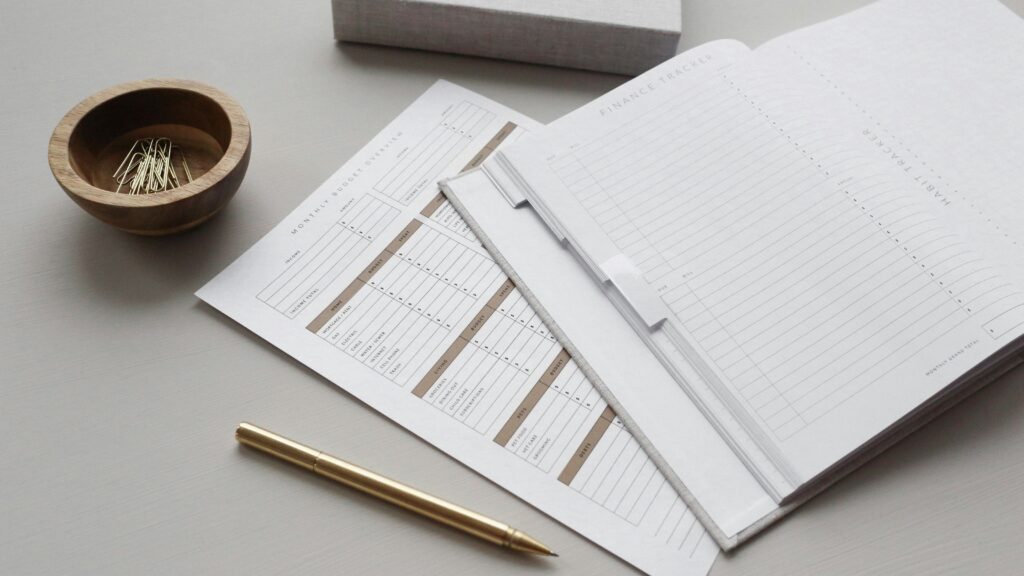Do you know how much to spend and save each week? That’s what a weekly budget helps you figure out. This article provides clear instructions for setting up a weekly budget, identifying your income and expenses, and tweaking it to fit your lifestyle. It’s about practical advice to maintain financial health, week by week. You won’t find overly-technical advice here, just clear steps to better money management.
Table of contents
Understanding Your Weekly Income
There’s more to understanding your weekly income than just knowing how much you’re paid. It’s crucial to have a clear picture of all your income sources and how they add up. Why? Understanding your weekly income is important because it helps you assess how much you can safely allocate for spending each week, considering all your committed expenses. This knowledge can help you better manage your finances.
Identifying All Income Sources
We all have our primary sources of income, like our salaries or wages. But what about the extra cash from that side hustle or freelance gig? All sources of household income should be listed, incorporating exact amounts to form a comprehensive picture of weekly income.
This holistic view of your cash flow is crucial when creating a monthly budget or a weekly budget.
Converting Monthly or Bi-Weekly Income to Weekly
Now that we’ve identified all income sources, it’s time to convert these figures to a weekly basis, ensuring you get paid weekly. This step ensures consistency and accuracy in budgeting, making it easier to match your income with your average weekly expenses.
So, how do we do this?
Categorizing Your Expenses

After understanding our weekly income, let’s shift our attention to our expenses. Categorizing your expenses helps identify areas where adjustments can be made to adhere to the budget.
Fixed Expenses
Fixed expenses are those recurring costs that remain relatively constant in amount, such as monthly bills. Think of your mortgage or rent payments, insurance premiums, and debt payments like loan repayments.
Variable Expenses
Unlike fixed expenses, variable expenses can fluctuate. These are necessities like groceries, gas, and utility bills, which vary based on usage and lifestyle choices.
Discretionary Expenses
Lastly, let’s talk about discretionary expenses. These refer to non-essential expenses such as:
- shopping
- hobbies
- vacations
- certain fixed discretionary items like a gym membership or streaming service subscription.
Crafting Your Weekly Budget
With a clear understanding of our weekly income and categorized expenses, we can now create a weekly budget using a weekly budget template. This process involves allocating funds for each category, adjusting our spending habits, and monitoring our weekly spending progress.
Allocating Funds for Each Category
When crafting our budget, it’s essential to allocate funds for each category. A popular framework for this is the 50/30/20 rule, which suggests allocating income by devoting 50% to needs, 30% to wants, and 20% to savings and debt repayment.
Adjusting Spending Habits
As we adjust to our new budget, it’s critical to also adjust our spending habits to save money. This doesn’t mean we have to drastically change our lifestyle, but it does mean we should be open to re-evaluate our choices in accordance with our financial targets.
Monitoring Progress and Making Adjustments
Crafting a budget is not a one-time task. It’s an ongoing process that requires regular monitoring and adjustments. Reviewing account statements, including credit card statements, and revisiting the budget every few months for adjustments is crucial to maintaining financial control and adapting to changes in income or expenses.
Implementing Budgeting Tools and Techniques

With our weekly budget crafted and ready to go, it’s time to make our lives easier by implementing budgeting tools and techniques. These tools can streamline the budgeting process and improve financial management, making budgeting feel less like a chore and more like a path to financial freedom.
Budgeting Apps
In this age of technology, why not make use of budgeting apps? These apps are designed to assist individuals in managing their weekly budget, providing a user-friendly and detailed view of financial health through various functionalities.
The Envelope System
If you’re more of a hands-on person, you might enjoy the envelope system. This system helps prevent overspending by allocating cash for different expense categories in separate envelopes, ensuring that spending for each category stays within predefined limits, similar to the discipline of having a savings account.
Financial Planning Services
Engaging with financial planning services can be highly beneficial, especially if you’re new to budgeting or have complex financial situations. Certified Financial Planner (CFP) professionals can assist individuals by providing personalized financial planning services to help create and maintain a weekly budget.
Overcoming Common Budgeting Challenges
As with any new endeavor, budgeting comes with its challenges. But don’t worry, we’ve got you covered. Let’s explore common budgeting challenges and how to overcome them.
Unexpected Expenses
One of the most common budgeting challenges is dealing with unexpected expenses. These are expenses that you didn’t foresee and therefore didn’t include in your budget. But does that mean your budgeting efforts have gone to waste? Certainly not.
Staying Motivated
Staying motivated in the face of financial challenges can be tough. It’s easy to lose sight of your goals when progress seems slow or when faced with tempting discretionary spending. But remember, budgeting is a marathon, not a sprint.
Balancing Wants and Needs
One of the most challenging aspects of budgeting is balancing wants and needs. It’s easy to blur the line between the two, especially when we’re faced with attractive deals or when we’re feeling stressed and in need of retail therapy. But being able to distinguish between essential and non-essential expenses is crucial for successful budgeting.
Summary
You’ve now embarked on a journey towards financial discipline and freedom. By understanding your weekly income, categorizing your expenses, crafting a foolproof weekly budget, and implementing budgeting tools and techniques, you’ve taken a significant leap towards mastering your money.
Frequently Asked Questions
To create a weekly budget, start by calculating your income and listing all your expenses. Differentiate between mandatory and lifestyle expenses, then subtract your expenses from your income. Regularly review and adjust your budget to meet your financial goals.
A weekly budget is a financial plan for a seven-day period, outlining income, expenses, and savings goals. It’s essential to track income, necessary and discretionary expenses, and allocate for savings to achieve financial stability.
To budget your weekly allowance, calculate your monthly expenses and divide them by four to know how much you need to cover each week. This method will help you manage your allowance effectively.
The 50-30-20 rule suggests allocating 50% of your income to needs, 30% to wants, and 20% to savings, including future goals. This can help you manage your finances effectively.
You can convert your monthly income to a weekly basis by multiplying your monthly income by 12 to get your annual income, then dividing the result by 52, the number of weeks in a year. This will give you your weekly income.




